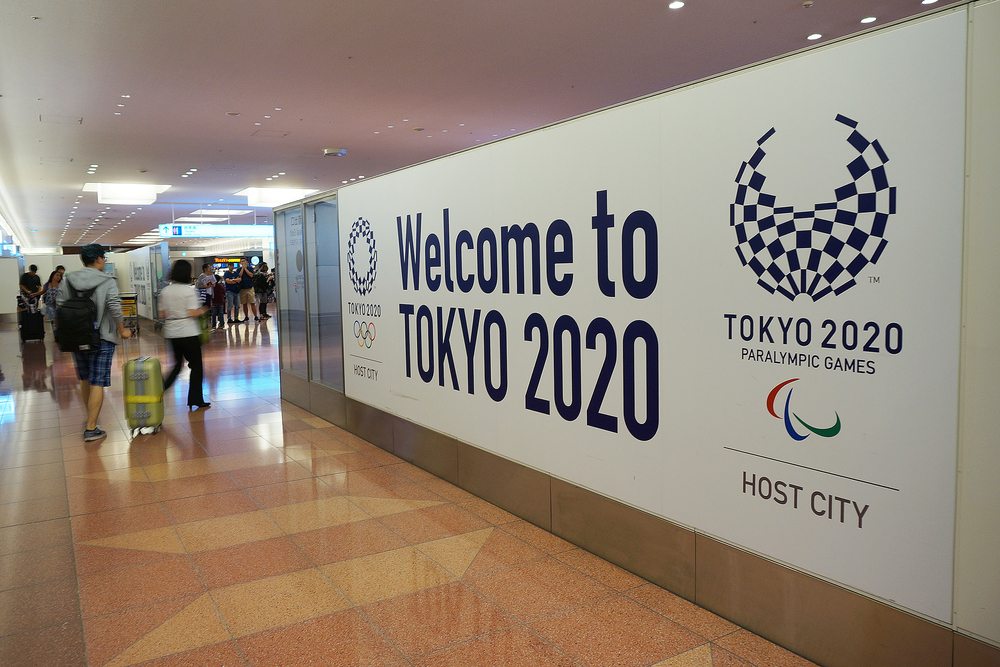
Malaysia to operate halal ‘central kitchen’ for Tokyo 2020 Olympics
KUALA LUMPUR - Malaysia intends to establish a central halal kitchen to manufacture and distribute halal food for athletes and visitors in time for the 2020 Tokyo Olympics.
Director of the Secretariat of the Malaysia Halal Council, Sirajuddin Suhaimee, told Salaam Gateway the facility would support restaurants across Tokyo, as well as dining facilities for Muslim competitors.
The move was prompted by calls from local restaurants and foodservice companies to find a way for Muslims to eat halal food in a city with very few certified outlets.
“The demand from the Japanese industry is so strong that they mentioned they wanted the central kitchen to be done by Malaysia, so we’re working on it,” said Sirajuddin, who is former director of the Malaysian Islamic Development Department (JAKIM) Halal Hub.
JAKIM will be promoting “Muslim-friendly” restaurants as a way to provide halal food while avoiding disrupting their regular business. Most restaurants in Japan’s capital serve alcohol, and there is little appetite for owners to forego this in return for being named a halal establishment.
Under JAKIM’s plan, a Muslim-friendly restaurant can continue to serve alcohol while providing halal food. The central kitchen will supply restaurants with packaged meals which can be heated in a microwave at the eatery.
In this way diners will know their food has not been in contact with anything that is not halal, said Sirajuddin at Malaysia Halal Expo in Kuala Lumpur over the weekend.
“It’s not easy for a restaurant to be fully halal in Japan. We know the Japanese like to drink sake with their food. So we will have Muslim-friendly restaurants.
“The central kitchen will provide pre-packed food that can be reheated. It means the food is halal but the premises may not be,” he added.
During the last Olympics in 2016 in Brazil, the Islamic Center of Brazil worked with the Rio Organising Committtee on the provision of halal food for competitors.
|
READ ALSO Overwhelming demand for halal food at Rio Olympics prompting organisers to increase supply |
Elsewhere, JAKIM-accredited Japanese halal certifiers are well placed to deal with an anticipated rush of manufacturers and foodservice operators in time for 2020.
Sirajuddin said the current number of Japanese bodies was sufficient to cater for any growing demand for certification.
“We have seven halal certification bodies in Japan recognised by Malaysia, and I think that seven is enough,” Sirajuddin told Salaam Gateway.
“More resources don’t mean we need to have more halal certification bodies in a country.”
MORE DEMAND FOR HALAL CERTIFICATION
Akmal Abu Hassan, president of the Muslim Professional Japan Association (MPJA), a Tokyo-based halal certification body, said Muslims number only 170,000 out of an overall population of over 126 million. While this tiny proportion may seem insignificant, it has still been drawing more establishments towards halal certification.
“Must Muslims look for Indian, Malaysian or Indonesian food when they visit Japan. It really isn’t easy finding halal restaurants here,” he told Salaam Gateway.
The country now has the highest number of foreign residents in its history, however.
Based on official figures, almost 2.5 million now live in Japan, having grown by 7.5 percent in 2017. This has been motivating some restaurants to seek halal status, Akmal said.
At the same time, increasing numbers of Japanese food manufacturers are eyeing Muslim countries, including Malaysia and Indonesia, as destinations for their food. Not all of them will be able to show a halal stamp on their goods, though.
Of the roughly 40 applications the MPJA has received each year since it began offering certification recognised by the Majelis Ulama Indonesia (MUI), and latterly JAKIM, less than 10 usually make the cut.
“Companies know the Muslim market is big, but many of them don’t know what halal certification requires,” Akmal said.
“So many Japanese companies are thinking about applying for halal certification, but they don’t understand the basics.”
Compared to factories in Malaysia, which are used to being part of an exclusively halal supply chain, it is often difficult for Japanese factories to separate halal food and ingredients at every stage.
“The demand is there, but not all of them can do it,” Akmal added.
|
READ ALSO Osaka gets serious about halal in the lead up to hosting World Expo 2025 |
(Reporting by Richard Whitehead; Editing by Emmy Abdul Alim emmy.alim@refinitiv.com)
Our Standards: The Thomson Reuters Trust Principles
© SalaamGateway.com 2019 All Rights Reserved
